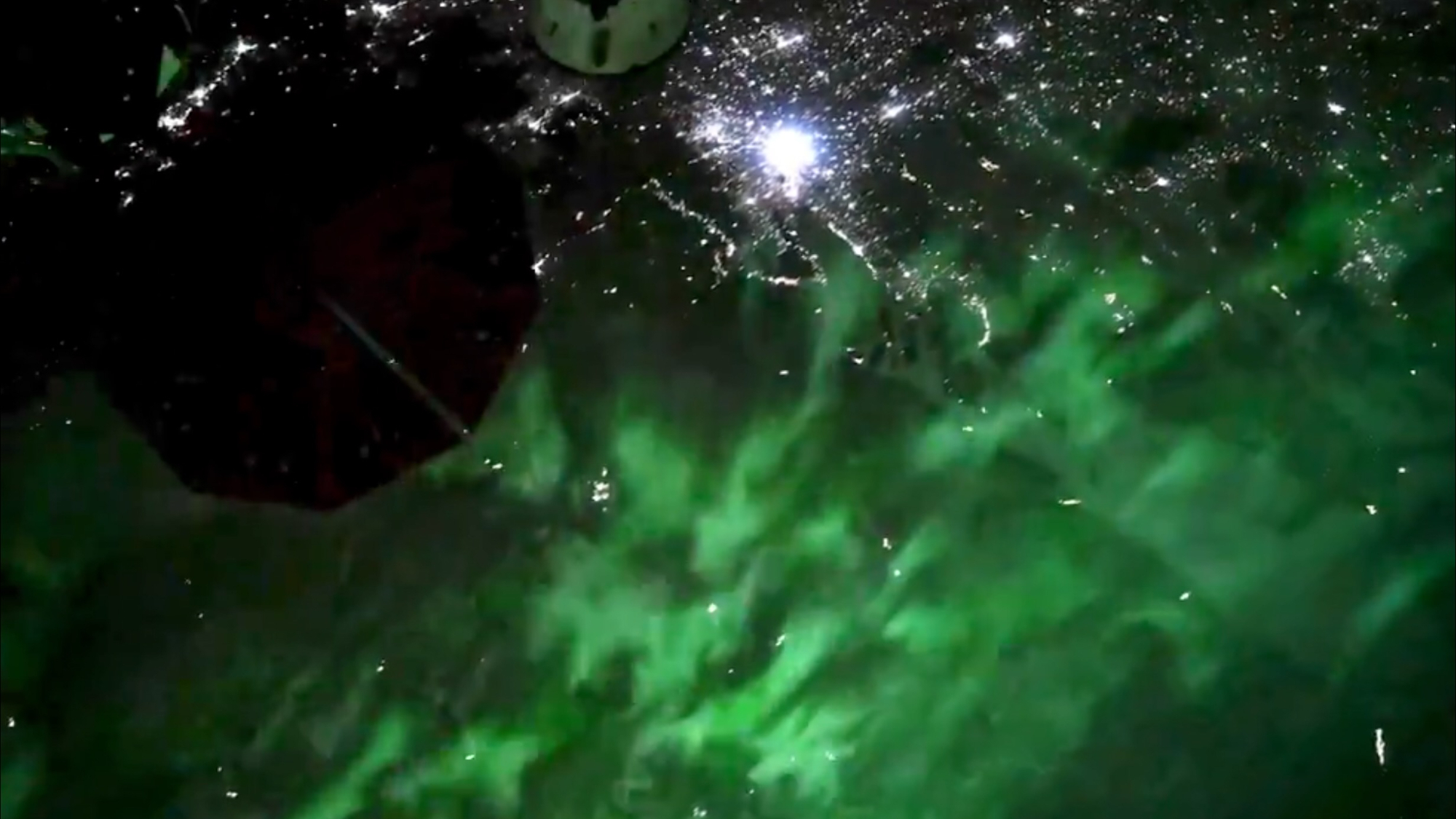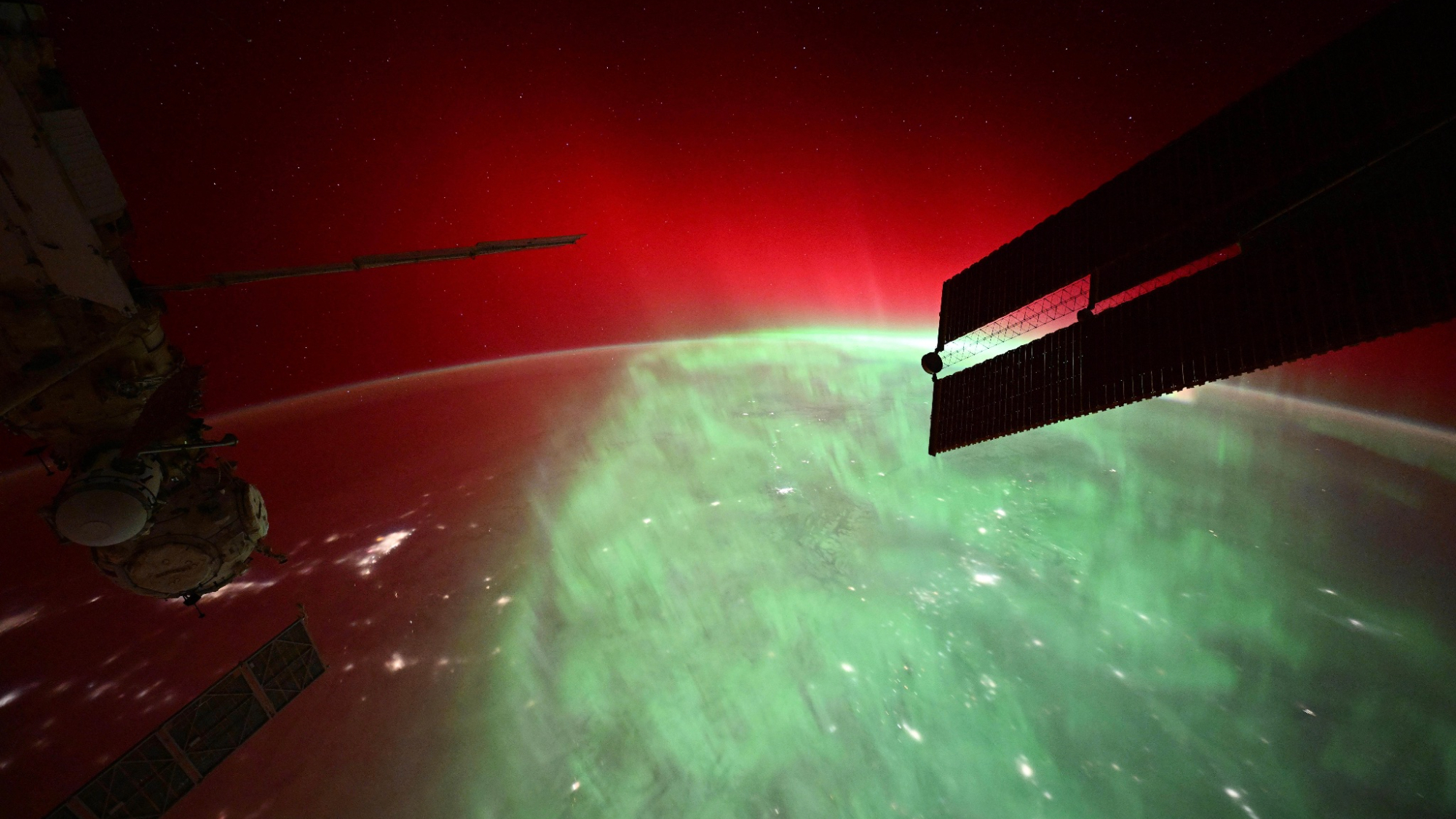
Don Pettit continues to give us great views of Earth from the International Space Station (ISS).
The NASA astronaut trained his camera on the northern lights recently, posting on X (formerly Twitter) a short video of the ghostly phenomenon flickering over nighttime city lights.
"Flying over aurora; intensely green," Pettit wrote in the Monday (Jan. 5) X post, which didn't specify which part of the planet was pictured.
Flying over aurora; intensely green. pic.twitter.com/leUufKFnBBJanuary 6, 2025
Pettit, who arrived at the International Space Station in September aboard a Russian Soyuz spacecraft, is known for his off-Earth photography skills.
Related: NASA astronaut uses homemade star tracker to take incredible deep space photo from ISS
In October, for example, he snapped a long-exposure photo that depicted city lights in northern Mexico as bright, dynamic streaks. That same month, he photographed a sphere of water that looked a lot like Jupiter, a colorful little ersatz world he created on the ISS using food coloring.
In November, Pettit captured the trail SpaceX's giant Starship megarocket made in Earth's atmosphere during its sixth-ever test flight. And in December, he posted on X a surprisingly sharp shot of distant stars and galaxies, which he took with the aid of a homemade star tracker.
Then, on Jan. 1, he posted a gorgeous northern lights photo, a very seasonal one featuring red and green aurorae.

The current six-month-long ISS mission is the fourth spaceflight for the 69-year-old Pettit, the oldest active member of NASA's astronaut corps.
He has two other long-duration ISS stays under his belt, one in 2002-2003 and the other in 2011-2012, and also flew a two-week mission to the orbiting lab in 2008.







